Netflix’s The Twits adaptation is part of its much bigger plans for Roald Dahl
Netflix’s plans for Roald Dahl aren’t going to stop with The Twits. Buying all the rights is part of a bigger picture.
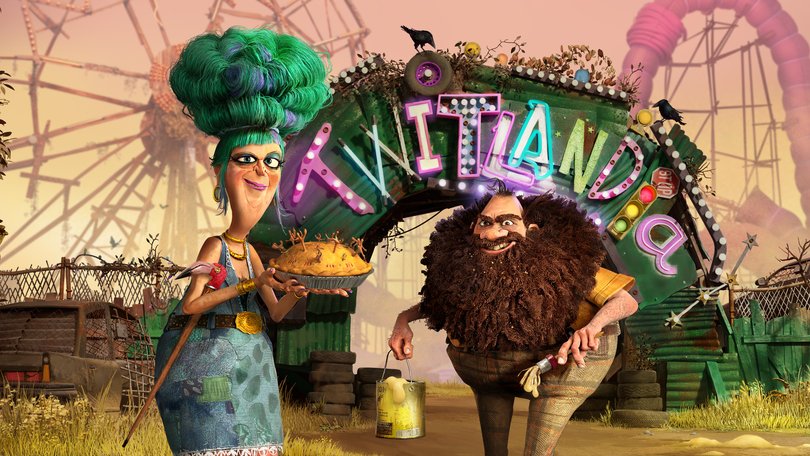
Have you heard? There’s a new Roald Dahl movie out today, based on two of the nastiest characters ever committed to paper by a man who revelled in the foul side of storytelling.
The Twits gets an American makeover with a feature film only loosely based on Dahl’s book.
Mr and Mrs Twit survived the transition, as did their characterisation as deeply unpleasant, unhygienic, unethical and basically awful people. The Muggle-Wumps also made it, but rather than skinny simians, they’re rounded and fluffy and blue, and one of them is voiced by Natalie Portman. Go figure.
Sign up to The Nightly's newsletters.
Get the first look at the digital newspaper, curated daily stories and breaking headlines delivered to your inbox.
By continuing you agree to our Terms and Privacy Policy.Dahl’s story was a small, contained one involving ugly pranks the Twits would play on each other, and a scheme to capture birds to bake into pie, but movie expands this much further.
The Twits have built a dangerous theme park but when that fails, they flood the town with rancid hotdog meat, and also run for mayor in a not-subtle satirical nod to current political events in the US.
Out to save the day are a pair of orphans, Beesha (Maitreyi Ramakrishnan) and Bubsy (Ryan Lopez), who represent hope and empathy.
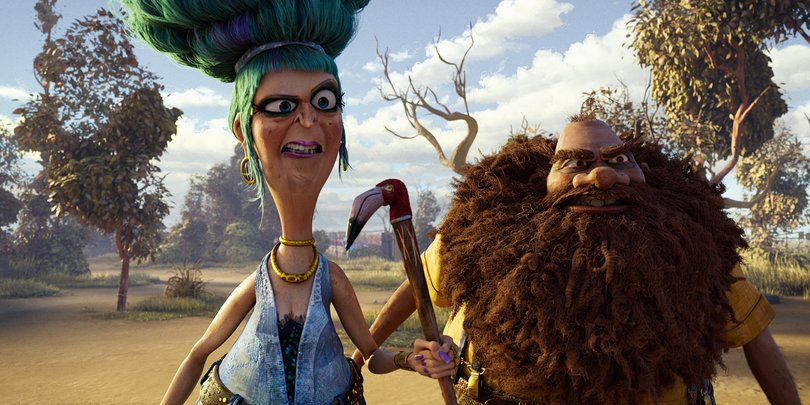
Directed and co-written by Phil Johnston (Ralph Breaks the Internet), it’s not going to be popular with Dahl purists, especially the decision to set the story in the US and also a musical number, but it may be a gateway drug for younger generations outside of the US who maybe didn’t grow up on the books.
The Twits, though, is just one piece of the ambitious Dahl puzzle for Netflix.
When Netflix bought the Roald Dahl Story Company in 2021 for £500 million, it was to date its most high-profile acquisition, and a rare one for the Silicon Valley-founded business.
Unlike legacy studios, Netflix doesn’t have a century worth of intellectual property to exploit, nor did it go on a buying spree like Disney did when it gobbled up Pixar, Marvel and Lucasfilm.
It’s been trying to build franchises out of its original productions, a challenge under even the best circumstances, and even harder when so few of its releases are “eventised”, coming and going on streaming with barely a register.
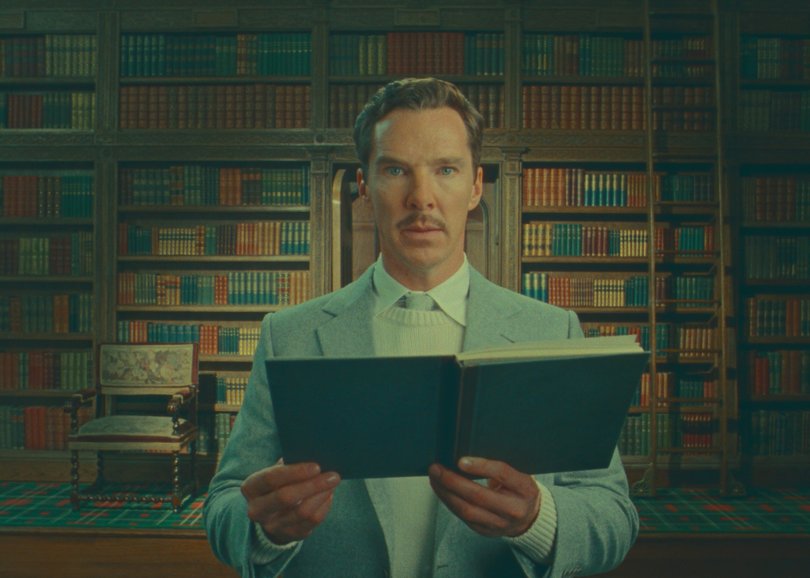
Stranger Things has been its most successful franchise builder with an animated spin-off in the works and a stage production. It’s also a core component of the streamer’s live experiences spaces - not quite theme parks, more than a pop-up - just getting off the ground.
Dahl’s works is an opportunity to buy a ready-made franchise, and one with endless potential for more than just screen adaptations.
Two years ago, Netflix, through the Roald Dahl Story Company, announced it had greenlit three theatre productions. One was a musical based off The Enormous Crocodile. Another was a “theatrical reading” of The Magic Finger, an online release for schools and kids.
The third was to be a “large-scale” circus, which would feature a gamut of Dahl characters., working with director Polly Findlay, and a team that had previously worked with illusionist Darren Brown’s productions, Cirque Bijou, Stephen Long and Iain Sharkey.
If it plays the long-game well, this could be a hugely lucrative space.
Disney separates its corporate structure into three segments and one of them is Experiences, encompassing its theme parks, cruise lines and consumer products. In the three months to March, the Experiences division reported revenues of almost $US9 billion.
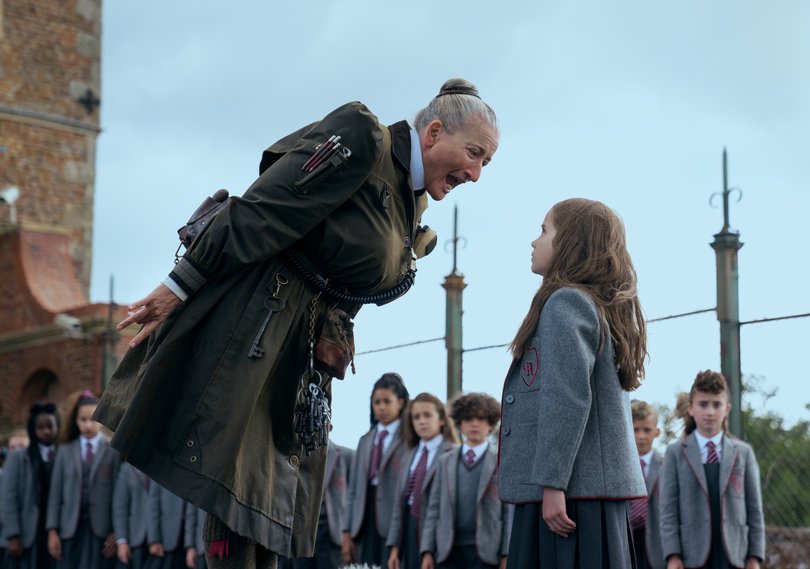
Netflix wants in on the action. The first of its Netflix Houses will open next month in the US city of Philadelphia, followed by Dallas in December with another scheduled for Las Vegas in 2027.
The houses are spaces that are free to enter and then once inside, there’s a mix of free and paid experiences all built around its successful titles. Examples include taking selfies with characters, or taking part in the “Red Light, Green Light” game from Squid Game. There’s obviously a lot of merchandise on sale as well.
For now, those experiences are built on the likes of Stranger Things, Squid Game, Bridgerton and Money Heist, but if Netflix could easily take the Dahl characters, already familiar to generations of consumers, and push them even further with screen adaptations in conjunction with live experiences.
You can see a future in which people can step into a real-life chocolate factory or a giant peach.
Dahl’s stories have long been a favourite for filmmakers, most famously the 1971 Willy Wonka and the Chocolate Factory starring Gene Wilder (the Tim Burton version belongs on the garbage pile). The 1996 Matilda movie and the 1990 The Witches film are also beloved.
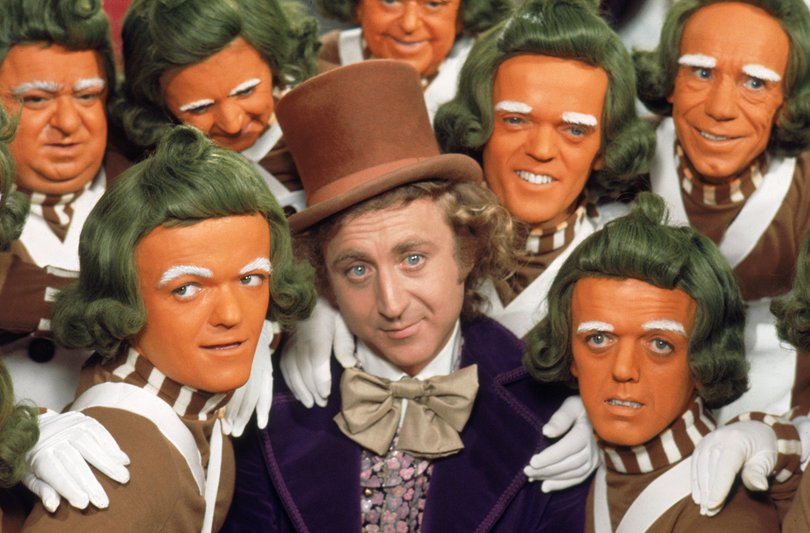
Since Netflix first signed a licencing deal in 2018 and then the acquisition in 2021, the streamer has been slow to roll out a whole slate, although it inevitably will.
There was the movie version of Matilda the Musical, released under the first deal, as well as Wes Anderson’s collection of short films, The Wonderful Story of Henry Sugar, which won the Europe-based director his first Oscar.
The Timothee Chalamet-led Wonka movie was produced and released by Warner Bros - it and the in-development sequel preceded the Netflix deal. But Netflix will still be exploiting the Charlie and the Chocolate Factory IP.
In May, the streamer announced it was casting for The Golden Ticket, a reality competition-style show that drew on elements of Wonka’s factory. Successful applicants have to be 18 years and over, so there will no children falling into a river of chocolate or floating into the air.
It was, however, only open to US residents.
We can only guess what Dahl would’ve made of the Americanisation of his canon, given the writer was famously not the most tolerant sort.
The Twits is streaming on Netflix

